Jewelry SEO for Small & Growing Brands: The Complete, Practical Guide
Jewelry SEO · Local SEO · Google Business Profile
Succeeding in today’s digital retail world takes more than having a website and social media. This guide explains, step by step, how jewelry brands can use SEO, local optimization, and off-site signals to grow qualified traffic and sales—without keyword stuffing or guesswork.
What is SEO?
SEO (Search Engine Optimization) makes your website and broader web presence easy for search engines like Google and Bing to understand and rank. Most marketers focus on Google because it commands over 90% of global search market share.
Early Google rewarded raw keyword usage, which led to “keyword stuffing.” Today, rankings center on user experience: is your site fast, mobile-friendly, relevant, and up to date?

While Google’s systems change, keep these pillars in mind:
- Meaning: match searcher intent (buy vs learn).
- Relevance: content, images/video that align with the query.
- Quality: trustworthy, cited, and useful content (backlinks help).
- Usability: multi-device performance and speed.
- Context: location, history, and settings personalize results.
Learn more: How Search Works
Using Local SEO Rankings for Your Jewelry Business
Competing nationally for generic terms (“jewelry”) is tough. Local SEO helps you win where it matters most—nearby shoppers ready to buy.
Google Business Profile
If you have a public, visitable address, a complete Google Business Profile is your #1 local asset. Fill every field, choose the right categories, add products and fresh photos, and maintain consistent hours. Don’t misrepresent your address; suspensions hurt visibility.
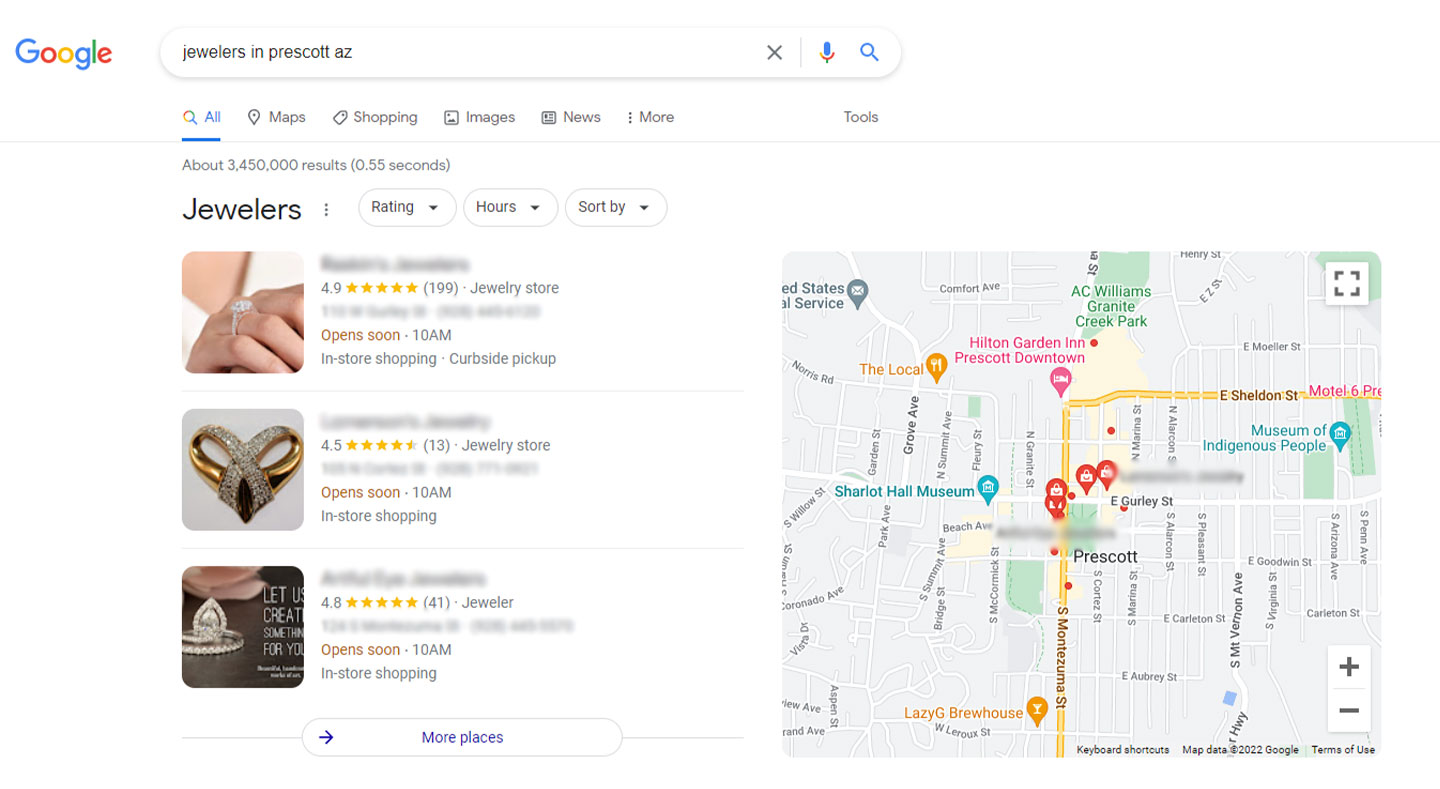
Embed a Google Map on your Contact page and keep your NAP (Name, Address, Phone) consistent across the web.
Other Online Directories
Claim profiles on reputable sites like Yelp and key industry directories. Services like Moz Local can help manage consistency at scale. Google prefers matching NAP across multiple trusted sources.
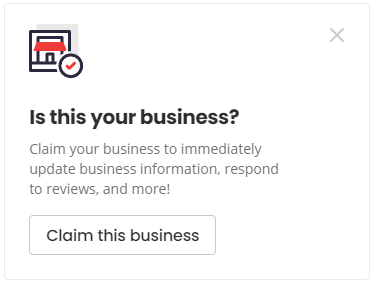
SEO for Jewelry Business Websites
Strong local performance still relies on a healthy site. Focus on technical health, helpful content, and optimized media.
On-Site SEO for Jewelry
Rule #1: Don’t keyword stuff—write like you speak to a customer. Google understands context.

Have a Good Website
Platforms like Shopify help with speed and mobile UX. Ensure helpful search, logical categories/filters, and fast load times (aim sub-2s on mobile). A modern, credible look also improves engagement.
Fix Technical Issues
- Repair broken links and redirect chains; keep HTTPS and sitemaps clean.
- Use Google’s Search docs and Search Console to monitor errors.
Do Keyword Research
Target multi-word phrases that match your products and buyers (e.g., “lab grown diamond engagement ring,” “gold huggie earrings”). Use Google’s related searches for ideas and the (free) Keyword Planner via a Google Ads account.
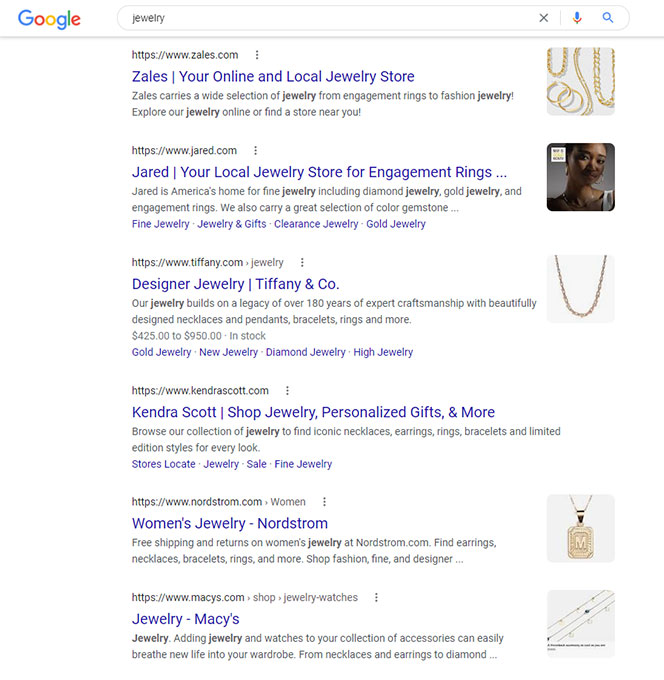
Use Keywords Naturally (No Cannibalization)
Assign one primary keyword per page. Use variations in copy, headers, image alt text, and filenames. Interlink related pages.
Write Better Product Descriptions
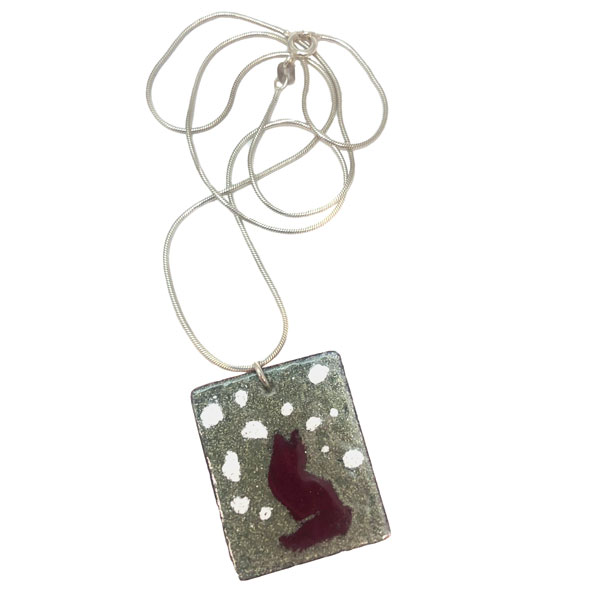
| DO | DON’T | |
|---|---|---|
| Item Name | Snowy Fox Enameled Necklace | Fox Necklace |
| Item Description | The perfect gift for a fox lover. This enameled pendant captures a red fox in the first snowfall. Size: 1”×1.5” on 18” sterling chain. | Enameled fox necklace. Size: 1”×1.5”. |
Filenames matter, too: use enameled-red-fox-pendant-sterling-silver-18in.jpg instead of IMG_5216.jpg.
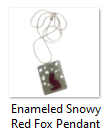
Consider a Google Merchant account so products surface in Google Shopping.
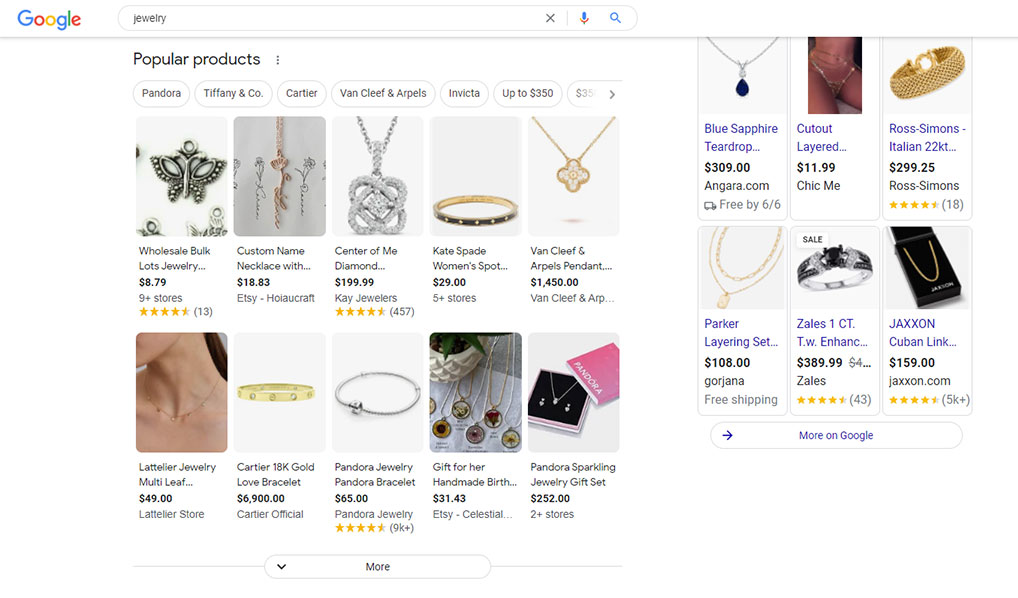
Meta Descriptions
Write enticing meta descriptions with a keyword or two to improve click-through. Google may rewrite them, but good copy helps.
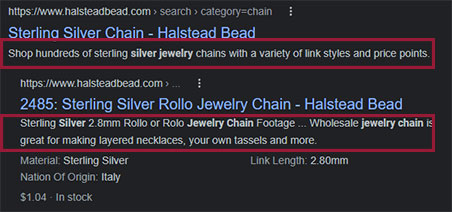
SEO-Friendly Content
Blog
Consistent updates signal freshness. Aim for clear, helpful posts (300–500+ words). Even common topics (e.g., jewelry care) work if written for your audience. See: creating jewelry content.
Images
Use high-quality images with optimized filenames and descriptive alt text. This improves accessibility and SEO. Guide: image SEO best practices and DIY photo tips.
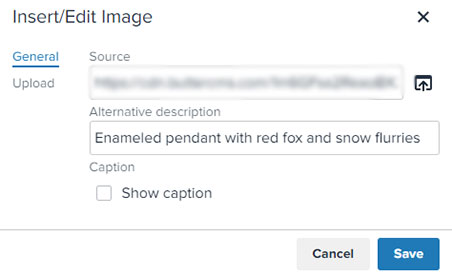
Contact Page & Reviews
Publish a Contact page with address (if public), phone, and email. Showcase reviews (Google Reviews can also appear in SERPs).
Off-Site SEO
Get Your Website Out There
Seek relevant backlinks from chambers of commerce, event pages, press, and vendor partners. Avoid spammy link lists; aim for reputable mentions.
Social Media
Complete profiles on Facebook/Instagram/Pinterest and post consistently. Profiles and posts often rank and help discovery. Keep NAP accurate on Facebook.
Get & Respond to Reviews
Reviews build trust and can show in search. Respond to all reviews—especially negative ones—to demonstrate care. Tips: handling complaints.
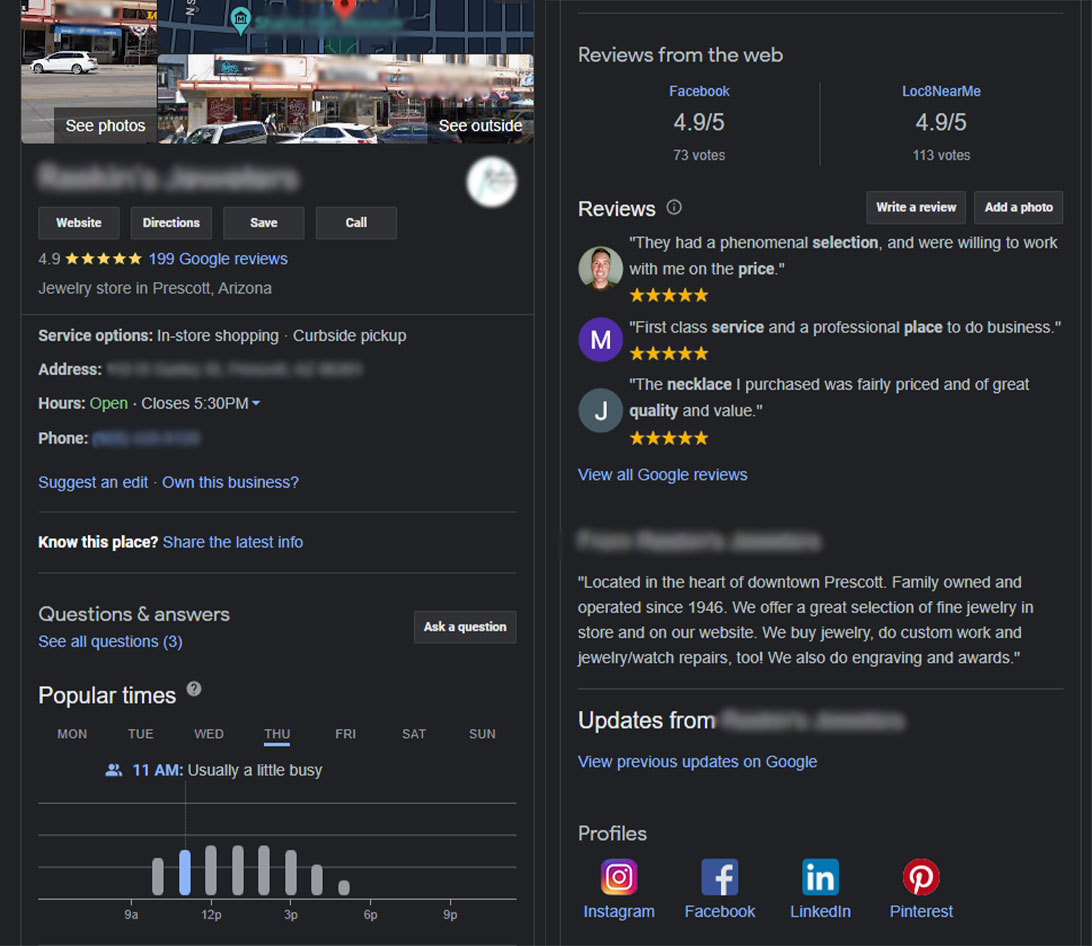
Use SEO Everywhere You Sell Jewelry
Apply the same keyword and content principles on marketplaces, Pinterest, and YouTube—these platforms have their own search engines. See: Pinterest marketing for jewelry.
Getting High-Quality Traffic to Your Website
Good SEO
Track which queries drive new, non-branded traffic. If branded queries dominate, expand topic coverage and product content to reach new audiences.
Online Press & Publicity (Influencers)
Pitch niche blogs, newsletters, and creators who serve your ideal buyer. Plan for repeated exposure, not one-offs. Learn more: influencers in jewelry marketing.

Social & Communities
Make your site content easily shareable. Join or host communities (e.g., Facebook Groups). Provide value first; sell second.
Offline to Online
Use QR codes on print materials to bridge the gap from events or stores to your website and email list.
Retention & Word of Mouth
Post-purchase emails, fast shipping, thoughtful unboxing, and great service turn first-time buyers into repeat customers and advocates.
Further SEO Resources
Jewelry SEO — FAQs
How long does SEO take for jewelry brands?
Expect early traction in 6–10 weeks if your technical setup is solid and content is consistent. Competitive terms take longer, but compounding gains reduce reliance on paid ads over time.
What are the best keywords for jewelry SEO?
Target specific, commercial phrases like “lab grown diamond engagement ring,” “tennis bracelet,” “gold huggie earrings,” and “custom engagement ring.” Build supporting content (care, sizing, style guides) around each cluster.
How do I optimize product images for SEO?
Use descriptive filenames (metal, stone, cut, color), compress to WebP/AVIF, and write meaningful alt text (what’s in the image and why it matters). Add short on-hand or 360° videos when possible.
Do reviews impact SEO?
Yes. Reviews improve conversion and can surface in SERPs via your Google Business Profile. Ask for reviews and reply to every one—especially negative ones—to build trust.
Want this done for you? Sprout Media specializes in jewelry SEO, local optimization, and growth systems.
